6582 Results for “production”
-
“We Started to Realize That Our Film Connects to the Current Moment in a Powerful and Urgent Way” | Julie Ha & Eugene Yi, Free Chol Soo Lee

The last two years have prompted much contemplation and reconsideration of the reasons why we make our films as well as the ways in which we make them. What aspect of your filmmaking—whether in your creative process, the way you finance your films, your production methodology or the way you relate to your audience—did you have to reinvent in order to make and complete the film you are bringing to the festival this year? We always knew our film would tell the story of how one Asian-American’s life was shaped by racism in the second half of the 20th century. […]
by Filmmaker Staff on Jan 21, 2022 -
“Given Enough Time and Space, Any Difficult Scene Can Be Solved”: Editors Jean Tsien and Aldo Velasco on Free Chol Soo Lee


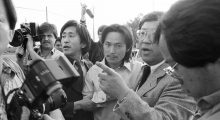
With Free Chol Soo Lee, directors Julie Ha and Eugene Yi examine the life and legacy of Chol Soo Lee, a Korean immigrant wrongfully convicted of committing a murder in San Francisco’s Chinatown at the age of 20 due to the false testimony of white tourists. When journalist K.W. Lee took an interest in Lee’s case, it spearheaded a wave of nation-wide pan-Asian activism. Editors Jean Tsien and Aldo Velasco and co-editor Anita Yu discuss how their understanding of their subject grew over time and how they ultimately decided to zero in on the film’s narrative trajectory. Filmmaker: How and why […]
by Filmmaker Staff on Jan 21, 2022 -
“One of the Thrills of Shooting Horror Is You Can Get Quite Expressionistic With Color and Pattern”: DP Charlotte Hornsby on Master

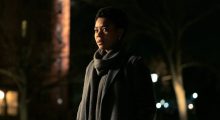
In Master, a student at the fictional Ancaster College, situated on land once used for gallows poles during the Salem witch trials, begins to suspect that the school is haunted and gradually uncovers the secrets behind its progressive veneer. Although the film is loaded with social critique, it operates as a horror film, which allowed cinematographer Charlotte Hornsby room to comfortably deviate from realism in crafting the film’s look. Below, she discusses the influence of filmmakers like Ingmar Bergman and Joanna Hogg and how the film’s aesthetic changes as the narrative unravels. Filmmaker: How and why did you wind up being […]
by Filmmaker Staff on Jan 21, 2022 -
“I Was Interested in Enhancing Spontaneous Observational Moments That Had a Strong Sense of Truth Behind the Avatar Embodiments”: Editor Joe Hunting on We Met in Virtual Reality


Joe Hunting directed, shot, edited and produced We Met in Virtual Reality, a documentary shot within virtual reality that follows a number of couples who met in VR while in lockdown during the COVID pandemic. Below, Hunting discusses what his subjects taught him about the VR space and how he edited the film to try to make audiences forget they were in VR. Filmmaker: How and why did you wind up being the editor of your film? What were the factors and attributes that led to your being hired for this job? Hunting: It was valuable for me to review and […]
by Filmmaker Staff on Jan 21, 2022 -
“What Does ‘Quiet’ Sound Like When You’re Trying to Express the Correct Emotion?”: Editor Michael Block on Watcher


Watcher is a psychological thriller that follows Julia, an American woman who moves to Romania when her husband receives a work opportunity. After seeing a neighbor watching her, Julia begins to think she is being stalked by the serial killer known as “The Spider” that is currently on the loose. Editor Michael Block explained how he led the audience to experience events the same way as its protagonist, the creative compositing in the film, and the different kinds of quiet in the sound design. Filmmaker: How and why did you wind up being the editor of your film? What were […]
by Filmmaker Staff on Jan 21, 2022 -
“Christine [Choy] Has Always Been a Person Who Puts Her Ideals into Action”: The Exiles Directors Violet Columbus and Ben Klein

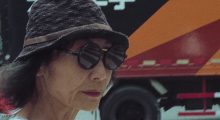
The first rule of documentary film? “Lie to everyone.” This from no less an authority (and anti-authority) than Christine Choy, the Oscar-nominated filmmaker (Who Killed Vincent Chin?) and educator (NYU, Cornell, Yale, etc.), founding director of Third World Newsreel, and straight-shooting (no pun intended) civil rights rabble-rouser. (Once during the US Film and Video Festival – soon to be rebranded Sundance – Choy even pulled Robert Redford aside to bluntly ask what was up with all the white people and white snow.) And now she is the cigarette-puffing central character in Violet Columbus and Ben Klein’s The Exiles, which executive produced […]
by Lauren Wissot on Jan 21, 2022 -
“Shooting Digitally Means Not Having to Play It Safe”: DP Doug Emmett on 892


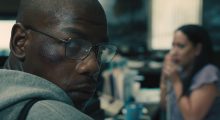
In 892, the debut film by Aby Damaris Corbin, a desperate former US Marine, driven nearly to homelessness by lack of resources and a stifling bureaucracy, decides to take hostages at a bank—but not because he wants money. What he wants instead is for people to hear his story and acknowledge what he has been through. Much of the film takes place in a single location where artificial lighting was not possible; cinematographer Doug Emmett explains how he was able to overcome these challenges and give the film a realistic and consistent look. Filmmaker: How and why did you wind up […]
by Filmmaker Staff on Jan 21, 2022 -
“One Way to Create a Natural Flow in Sequences Is to Be Very Mindful of Eye Trace”: Editor Chris Witt on 892



Based on a true story, 892 depicts a veteran who struggles to reintegrate into civilian life and, after having his dignity whittled down by financial precarity and a society unreceptive to his needs, he decides to hold up a bank. Below, editor Chris Witt discusses how he subtly adjusted the movie’s pace, drew on Greek tragedy to make the final act as moving as possible, and shaping Michael Kenneth Williams’ final performance. Filmmaker: How and why did you wind up being the editor of your film? What were the factors and attributes that led to your being hired for this job? […]
by Filmmaker Staff on Jan 21, 2022 -
“I Would Often Capture the Same Shots on 16mm and Digital”: DP Connor Smith on The Exiles

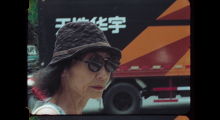
In 1989, filmmaker Christine Choy was hired to shoot interview footage of dissidents from the Tiananmen Square protests, but she never had the chance to show anyone involved the footage. More than thirty years later, Choy embarks on transcontinental travel to show leaders of the movement that footage, and first-time filmmakers Ben Klein and Violet Columbus and cinematographer Connor Smith were present to capture the journey. Below, Smith discusses finding the shooting style right for the film and what it’s like to capture another filmmaker with his camera. Filmmaker: How and why did you wind up being the cinematographer of […]
by Filmmaker Staff on Jan 21, 2022 -
“Getting the Opportunity to Work on a Feature Brought Me Back From the Dead” | Mimi Cave, FRESH

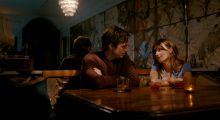
The last two years have prompted much contemplation and reconsideration of the reasons why we make our films as well as the ways in which we make them. What aspect of your filmmaking—whether in your creative process, the way you finance your films, your production methodology or the way you relate to your audience—did you have to reinvent in order to make and complete the film you are bringing to the festival this year? In the last two years so much has changed, yet the basis of why we make films is the same. Our need to connect through our […]
by Filmmaker Staff on Jan 21, 2022
